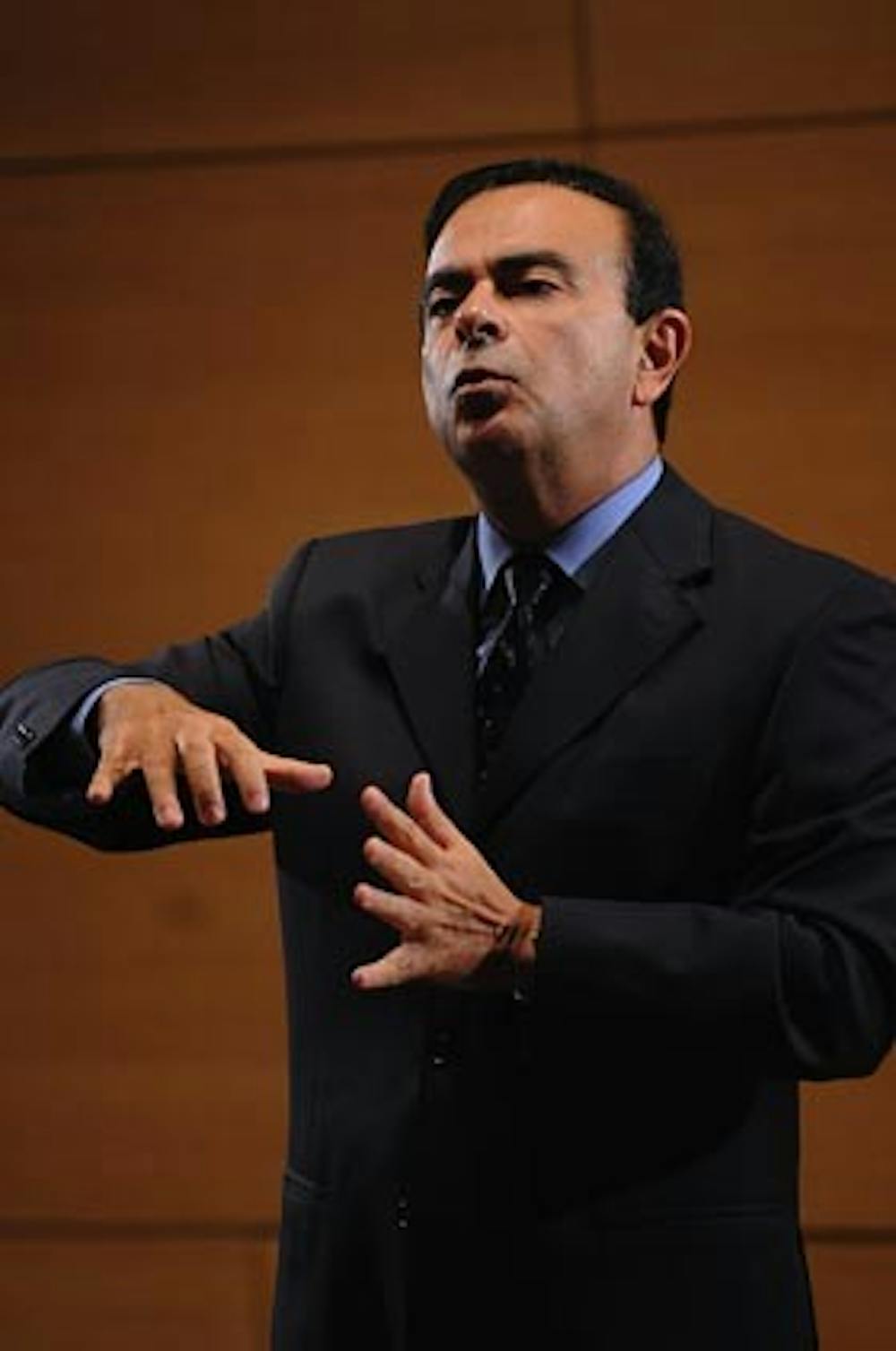Carlos Ghosn wants students to take the path less traveled.
Japanese icon Carlos Ghosn, CEO and President of Renault of France and Nissan of Japan, gave this semester’s second Wharton Leadership Lecture last night in Huntsman Hall. Ghosn discussed his career and his current work on the electric car, while also giving students advice for achieving success in the business world.
As a college student, Ghosn said he had no idea what he wanted to do with his life. He cautioned students against trying to predict their career paths.
“Man plans and God laughs,” Ghosn reassured the audience.
He encouraged students to take a leaf out of his own book and seize upon the opportunities that seem the strangest, rather than following a set plan.
Ghosn was born in Brazil in 1954, and began his career in France as the head of research for industrial tires at tire manufactoring company Michelin. By age 34, Ghosn had become the president of Michelin in North America.
Later, Ghosn became the excecutive vice president of French car-manufactoring company Renault. With the company $20 million in debt, Renault sent Ghosn to Tokoyo, and within a year Ghosn had done the unthinkable — turned around the company and made a huge profit.
Ghosn was made president and CEO of both Renault and Nissan in 2000 and 2001, and in that role he produced global sales of 6.8 million vehicles. As president, Ghosn made the executive decision to merge the two companies into one: Renault-Nissan.
According to Ghosn, this move not only was strategic business-wise, but also created a unique a hybrid of different cultures including French, Japanese, Chinese and Russian.
Today, Renault-Nissan is responsible for the marketing of the electric car, due to be on the market in the United States and Japan in 2010.
According to Ghosn, the benefit of this car is that it has a zero-emission rate of carbon dioxide and is just as affordable as any other car on the market. The initiative is government-supported, which helps it compete with the 68 billion gasoline-run cars sold annually, because it protects the environment from the chemical waste produced by the car industry.
For his innovative work to turn around the Japanese car industry, Ghosn is considered an “icon,” according to a Ghosn’s relative, Albert, who introduced him. He received a Medal of Blue Ribbon from the Emperor of Japan, and has won numerous other prestigious awards from around the world.



